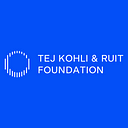Blindness in the Nation of Ghana
A 2015 International Agency Prevention of Blindness (IAPB) study of Ghana stated that 0.74% of the population is blind, with over half of those (126,180 people) blind due to cataracts. On top of this, 1.07% (331,700 people) suffer from some form of visual impairment.
The nation of Ghana saw growth in their economy in the past 20 years, with 1,000 more people reaching millionaire status between 2006 and 2016. This rise in the country’s wealth is a good thing in terms of economic development, but it doesn’t speak for the hundreds of thousands still living in poverty.
Like many nations, there is a visible divide between the wealthy and the poor in Ghana. The conditions of those living in poverty often don’t allow for opportunities to escape the cycle of poverty, or even sometimes access the most basic of needs.
The lack of access to basic needs like healthcare can result in people being pushed further into extreme poverty, deepening the divide between the poor and wealthy. To end this, healthcare experts have been discussing ways to manage this situation, with significant contributions to the discussion made by the late Dr Oscar Amfari Debrah.
In 2006, Dr Debrah was appointed as the Head of Eye Care of Ghana Health Services and the National Coordinator for the Prevention of Blindness Committee, working with the Himalayan Cataract Project (HCP). After retirement in 2016, he was brought back in by the HCP to be the Ghana Country Representative for the organisation. He helped establish the National Cataract Outreach Program (NCOP) which aims to eliminate the backlog of cataract surgery by making it accessible to all in the country, regardless of socioeconomic status.
The 2015 IAPB study showed figures relating to the problem of blindness in Ghana. It showed that the prevalence of blindness was highest in rural areas of Ghana and that 67.74% of blind people live in areas with no blindness treatment or prevention services. In terms of gender and blindness, the study showed that just over half, 54.8%, of the blind population were female.
Pre World Sight Day in 2021, the Ghana Health Services (GHS) conducted a survey that showed 227,920 Ghanaians were completely blind, with 54.8% blind due to cataracts. Dr James Addy, Head of Eye Care Unit of GHS, said that some cases of blindness were preventable and urged Ghanaians to attend regular eye care screenings.
He also went on to explain that women were 12% more likely to come blind and this was because of ‘hormonal changes, how they were frequently exposed to trauma and the use of cosmetics, and how they live longer than men’.
VISION 2020, a framework to get Ghana to a middle-income country by 2020, was set up in 2000 and part of the goal, set by the WHO, was to ensure there was at least one optometrist to each 50,000 of the population. In 2019, results showed that Ghana was at 80% of that goal, with one optometrist to 76,508 people.
To ensure the number of blind and visually impaired people in Ghana continues to diminish, more effort needs to be made to spread resources to all reaches of the nation. More rural areas need to be prioritised and technology, infrastructure and human resources must be put in place in those areas in order to tackle the problem of blindness in Ghana and reduce economic inequality in the country.
The Tej Kohli & Ruit Foundation was founded in March 2021 by London philanthropist Tej Kolhi and Kathmandu ‘God of Sight’ Dr Sanduk Ruit. As of November 2022 the NGO had screened 170,022 patients and cured 22,663of blindness at 91 outreach camps in Nepal, Bhutan and Ghana. The Tej Kohli & Ruit Foundation is a restricted fund operating under the auspices of Prism The Gift Fund, registered UK charity number 1099682. The Foundation targets the #1 United Nations Sustainable Development Goal of reducing poverty by making large-scale surgical interventions to cure blindness at the grassroots in the developing world. All treatments are provided completely free, with 100% of the funding coming from Tej Kohli and the Kohli family.
